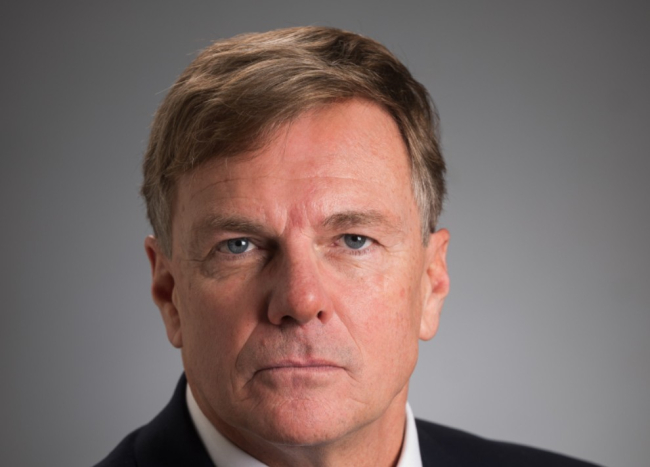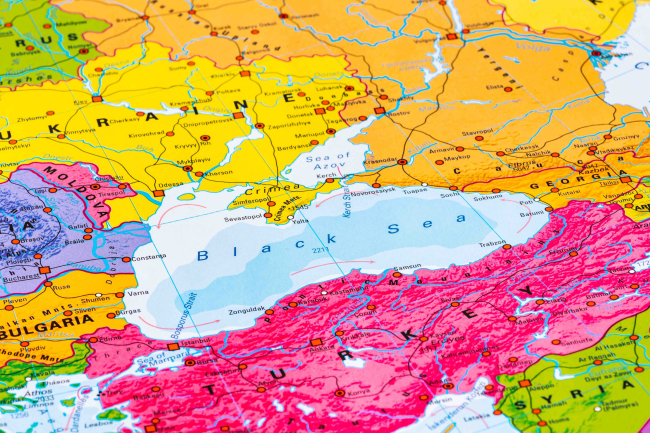
Practical information
The war in Ukraine is a game changer that questions the post-Cold War project of a united and converging Euro-Atlantic space. The end of the conflict and the peace settlement require reflection on the contours of a future European security architecture and on solutions for other unresolved crises, such as frozen conflicts.

The settlement of Russia’s war of aggression against Ukraine requires a multifaceted approach. However, the global impact of the war in Ukraine contributes to fragment and polarize the international community. It is difficult to consider new negotiations on Europe’s security architecture in the present tense political climate, and without a clear vision of the outcome of the war.
This public event is intended to reflect the debate relating to the challenges resulting from the war in Ukraine and identify a way forward in a volatile European security environment.
PROGRAM
10:30 - 11:00
Opening remarks
Eric-André Martin
Secretary General of the Study Committee on Franco-German Relations (Cerfa)
Keynote speech
Thierry de Montbrial
Executive Chairman of Ifri
11:00 - 12:30 PANEL 1: “THE WAR IN UKRAINE: UNDERSTANDING THE ROOTS AND IDENTIFYING A WAY FORWARD”
Hans-Dieter Heumann, Senior Fellow at the Center for Advanced Security, Strategic and Integration Studies. Former Ambassador. Former President of the Federal Academy for Security Policy in Germany
Stefanie Babst, Former NATO Deputy Secretary General, Strategic Advisor (online)
Arancha González Laya, Former Minister of Foreign Affairs, European Union and Cooperation of Spain (2020-July 2021)
Konrad Szymanski, Former Polish Minister for European Affairs from 2015 to 2022.
Carlo Masala, Chair of International Politics, University of the Federal Armed Forces, Munich
Moderation: Ulrike Franke, Senior Policy Fellow at the European Council on Foreign Relations in Paris
12:30 - 13:30
Lunch Break
13:30 - 15:00 PANEL 2: “NEW CRISIS DYNAMICS: DRIVERS, ACCELERATORS AND OPPORTUNITIES?”
Andreas Nick, German MP, Member of the Committee on Foreign Affairs from 2013 to 2021. Vice-president of Parliamentary Assembly of the Council of Europe from 2018 to 2022 (online)
Serap Güler, German MP. Member of the Defense Committee in the German Federal Parliament. Deputy Chairwoman of the Study Commission on Afghanistan
Bart Laurent, Brigadier General (ret.) of the Kingdom of Belgium. Formerly European Union Military Staff (EUMS) Director of Operations
Hans Dietmar Schweisgut, Secretary General of the Austro French Center for Rapprochement in Europe (ÖFZ/CFA)
Annabelle Livet, Research Fellow, Fondation pour la Recherche stratégique
Moderation: Marie Krpata, Research Fellow at the Study Committee on Franco-German relations, Ifri.
15:00
Closing remarks
Hubert Védrine, Former Minister of Foreign Affairs, France
In discussion with:
Cyrille Pluyette, Deputy Editor-in-Chief , L'Express
The conference will be held in French, English and German (simultaneous translation).


Related Subjects
Other events

Foreign Intelligence Services Amidst the War in Ukraine: Adapting to a New Strategic Reality
European foreign intelligence services have had to continuously adapt to the rapidly evolving security landscape of the past few years. Following challenges such as the COVID-19 pandemic, financial crises, and hybrid threats, the Russian war of aggression against Ukraine has placed conventional military conflict at the centre of European security concerns.

Affirming European Security in Ukraine and the Black Sea Region
European security has been challenged in 2022 with the full-fledged invasion of Ukraine by the Russian Federation.

Doing Politics in African Cities: Actors, Causes and Forms of Urban Social Mobilization
From Maputo to Nairobi and from Lagos to Dakar: recently, African cities have been the theatre of mobilizations by groups of young protesters.









